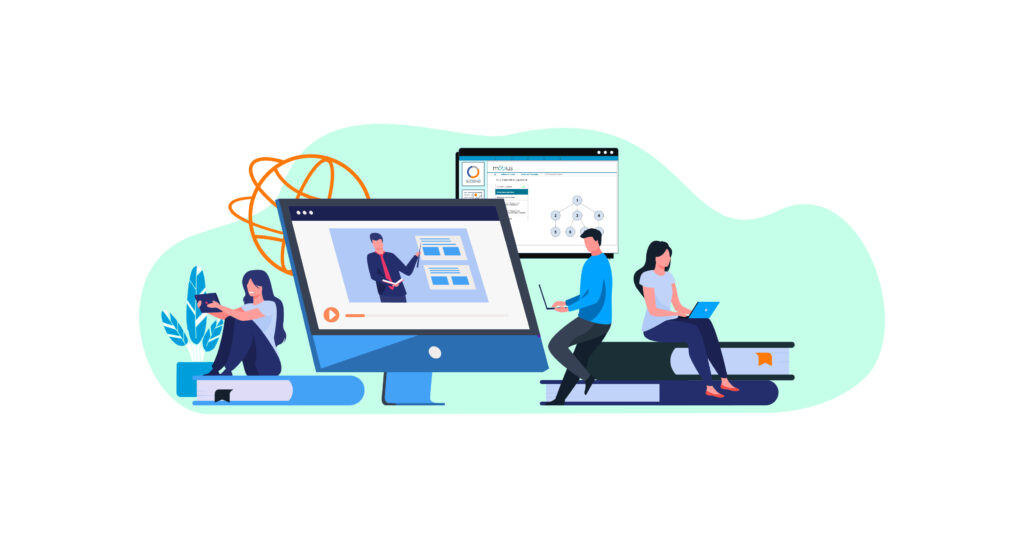Mastering Digital Accessibility: Your Path to Inclusive Learning

As education becomes more digitized, we must ask: How can we ensure every student, regardless of ability or location, has access to the same high-quality learning experience? This is where digital accessibility plays a pivotal role.
In today’s fast-paced, technology-driven world, digital accessibility has become more than just a buzzword; it’s a fundamental necessity for shaping the future of education. Particularly in STEM fields (Science, Technology, Engineering, and Mathematics), ensuring that learning platforms cater to students of all abilities is crucial for fostering a truly equitable and inclusive learning environment.
At DigitalEd India, we are proud to support this movement with Möbius, an innovative blended learning platform designed to meet the demands of modern education while prioritizing digital accessibility.
What is Digital Accessibility?
Digital accessibility refers to the design and development of digital content and platforms in a way that allows individuals with disabilities—whether cognitive, physical, or sensory—to engage fully. In an era where learning is increasingly remote and diverse, digital accessibility is more than just a regulatory obligation; it’s a moral and educational imperative.
According to the World Health Organization (WHO), over 16% of the global population experiences some form of disability. As more educational content moves online, ignoring the needs of this population is no longer an option. Digital accessibility ensures that learning environments cater to all students, including those who live in remote areas or face temporary disabilities, leveling the playing field for an inclusive educational experience.
The Growing Importance of Digital Accessibility in Education
Digital accessibility is crucial for creating a learning environment where all students, regardless of their challenges, can thrive. It opens doors for students with disabilities, allowing them to engage with digital content.
At the heart of this transformation is the realization that digital accessibility benefits everyone. Studies show that creating accessible content improves user experience across the board. For instance, captioning in multimedia doesn’t just help students with hearing impairments; it aids learners who prefer reading or need clarity in noisy environments.
Similarly, making interfaces more operable through keyboard shortcuts or voice commands helps not just those with mobility issues, but also learners who may prefer faster, hands-free navigation.
Let’s look at some of the advantages of embracing digital accessibility:
1. Enhanced User Experience
Accessible platforms are user-friendly, offering better navigation and usability, which in turn increases engagement. Accessible content is beneficial not just for students with disabilities but for all learners, making it easier to access information in diverse ways.
2. Broader Reach
By incorporating digital accessibility, educational institutions can extend their reach to include international students, learners with different learning styles, and those from underserved communities.
3. Improved Learning Outcomes
Students learn better when they can interact with content in ways that suit their needs. Offering multiple formats—such as audio, text, and visual options—enhances learning retention and comprehension.
4. Future-Proof Education
With rapid advancements in technology, digitally accessible content ensures that educational materials remain adaptable and compatible with future technologies, safeguarding the institution’s investment in content development.
5. Legal Compliance
In many jurisdictions, there are laws and regulations that mandate digital accessibility. By prioritizing accessibility, educational institutions can avoid legal issues and demonstrate their commitment to inclusivity.
Fostering Inclusive Learning with Digital Platforms
Digital platforms, like Möbius, are designed to cater to the diverse needs of the modern learner. Möbius prioritizes accessibility by integrating features that promote inclusivity, whether it’s through customizable digital assessments, real-time feedback, or personalized learning pathways. Our platform’s intuitive design ensures that students can navigate the system easily, regardless of their background or ability.
Learn more about Möbius – Möbius STEM Learning: Unlocking the Potential of India’s Future
We believe that ensuring digital accessibility isn’t just about ticking boxes; it’s about creating an inclusive environment where all students, regardless of their abilities or circumstances, can excel in STEM fields.
Let’s check out some best practices for enhancing digital accessibility:
- Provide Multiple Means of Engagement
Offer students various ways to engage with the material, whether through interactive content, videos with captions, or text-based resources. This approach helps accommodate different learning preferences.
- Ensure Compatibility with Assistive Technologies
Platforms should be compatible with screen readers, speech-to-text, and other assistive technologies, ensuring that students with disabilities can access content effectively.
- Use Inclusive Design Language
Ensure that educational content and UI elements are easy to understand and navigate. Avoid jargon or overly complex instructions and keep layouts simple and clear.
- Focus on Responsiveness
In a world where students use multiple devices to access learning materials, ensuring that content is responsive and optimized for various screen sizes is crucial.
Möbius: Empowering the Future of Accessible STEM Education
At DigitalEd India, we believe in the power of digital accessibility to revolutionize STEM education. Möbius provides a user-friendly platform where learners from all backgrounds and abilities can succeed. By focusing on digital accessibility, Möbius enhances student engagement and learning outcomes, making education more inclusive and adaptable for all.
Ready to Make Your Educational Content Accessible?
Empower your institution with Möbius, the intuitive blended learning platform designed to meet the diverse needs of today’s STEM learners. Book a personalized demo today and discover how Möbius can transform your educational offerings by prioritizing digital accessibility.